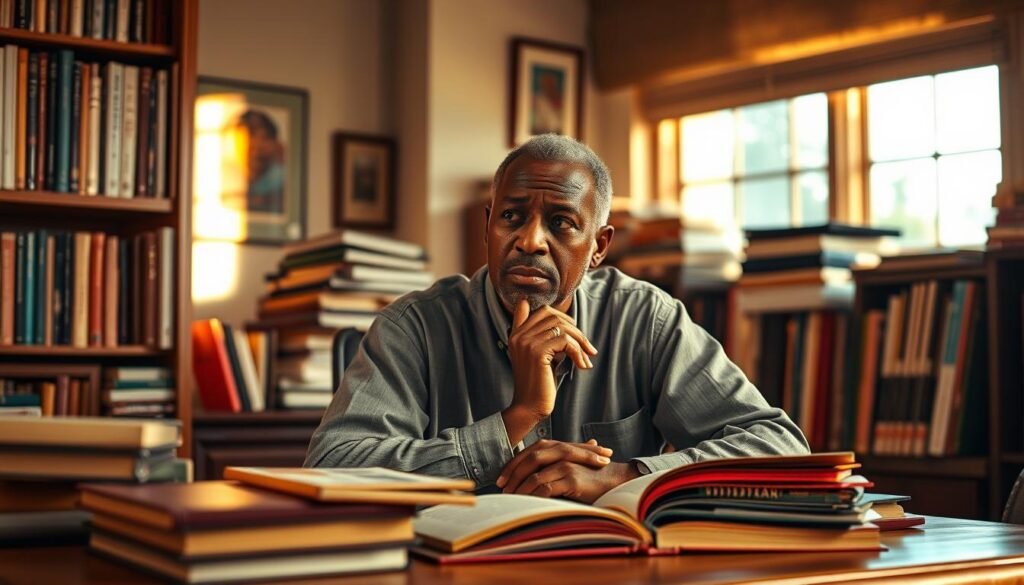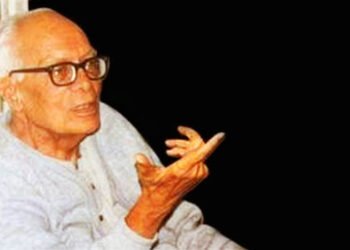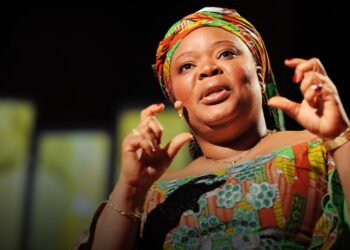What happens when one man’s words become more powerful than a government’s weapons? This question lies at the heart of a remarkable story from Africa’s most populous nation.
Kenule Beeson Saro-Wiwa was a Nigerian writer and activist who dared to challenge powerful interests. He fought for the rights of his Ogoni people in the Niger Delta region.
For decades, oil companies operated in this land with little regard for the environment or local communities. The ecological damage was severe, and the people suffered.
Saro-Wiwa used his writing skills and moral authority to demand justice. His nonviolent movement gained international attention and support.
This courageous stand would ultimately lead to his arrest by the Nigerian government and a controversial trial. Despite global appeals, he was executed in 1995, becoming a martyr for human rights and environmental causes.
Key Takeaways
- Ken Saro-Wiwa was a prominent Nigerian writer and environmental activist
- He led the movement for Ogoni rights in the oil-rich Niger Delta region
- His activism challenged both oil companies and the Nigerian government
- He was arrested, tried, and executed in 1995 despite international protests
- His death brought global attention to human rights and environmental issues
- His legacy continues to inspire movements for justice worldwide
- He received posthumous awards recognizing his courage and contributions
Introduction to Ken Saro-Wiwa
When environmental devastation meets human rights advocacy, the story of a Nigerian activist emerges as a timeless lesson in courage. This section explores the multifaceted identity of a man who became a symbol of resistance.
Who Was Ken Saro-Wiwa?
This remarkable individual was a Nigerian writer, television producer, and dedicated activist. He committed his life to fighting for the rights of the Ogoni people in the Niger Delta region.
He gained prominence as the leader of MOSOP (Movement for the Survival of the Ogoni People). This organization advocated for environmental justice and autonomy against oil exploitation.
His work challenged both multinational corporations and the Nigerian government. He demanded accountability for the ecological damage affecting his people’s land.
Why His Story Matters Today
This activist’s story remains relevant because it highlights ongoing global issues. Corporate accountability and environmental racism continue to affect resource-rich regions worldwide.
His execution in 1995 demonstrated the dangers faced by those who challenge powerful interests. This case set a benchmark for human rights advocacy that continues today.
The struggle he led inspires current movements protecting indigenous lands. His legacy lives on through legal actions and increased environmental awareness.
Understanding his life helps contextualize modern debates about climate justice. It also sheds light on government responsibilities in safeguarding citizens’ rights.
His literary works blended art with activism, reaching broad audiences. This approach continues to influence how stories of injustice are told today.
Early Life and Education
Before becoming a global symbol of resistance, the foundation of this remarkable activist’s journey was built through formative experiences in his homeland and academic pursuits.
Childhood in Bori, Nigeria
Born on October 10, 1941, in Bori near Port Harcourt, the young activist grew up in Rivers State. His father, Chief Jim Wiwa, served as a forest ranger and held an important position in the local chieftaincy system.
This traditional upbringing exposed him to the rich cultural heritage of the Ogoni people. These early experiences in his homeland would later shape his deep connection to the region and its people.
Growing up in this environment gave him firsthand understanding of community dynamics. It planted seeds for his future advocacy work in the Niger Delta area.
Academic Achievements and University Years
His educational journey began at a Native Authority school in Bori. He quickly demonstrated exceptional academic abilities from an early age.
He attended Government College Umuahia for secondary education. There, he distinguished himself as a top student, winning prizes in History and English.
Beyond academics, he showed leadership as captain of the table tennis team. This balanced approach to education highlighted his diverse talents.
His outstanding performance earned him a scholarship to study English at the University of Ibadan. During his university years, he continued to excel academically, winning departmental prizes in 1963 and 1965.
He also developed a passion for drama, working with theater groups including the Nottingham Playhouse. This experience fostered his interest in writing and performance that would influence his future career.
These formative years provided the intellectual foundation for his later work as a writer and activist. The blend of traditional values and modern education equipped him to navigate complex social and political landscapes.
Career Beginnings and Literary Works
Before becoming a full-time activist, this remarkable individual built a diverse career that showcased his creative talents and intellectual depth across multiple fields.

Teaching and Early Professional Life
After completing his studies, he began his professional journey in academia. He served as a teaching assistant at the University of Lagos before moving to the University of Nigeria, Nsukka.
There he lectured on African literature, sharing his passion for storytelling and cultural preservation. His academic career was interrupted by the Nigerian Civil War, which reshaped his perspective.
During this turbulent period, he took on administrative roles in Bonny. These experiences gave him firsthand insight into government operations and community needs.
Notable Writings and Publications
His literary career blossomed with works that blended sharp satire with social commentary. The novel Sozaboy: A Novel in Rotten English became his most celebrated work.
Published in 1985, this groundbreaking book used pidgin English to capture the experiences of ordinary people during the Biafran War. This innovative approach gave voice to those often overlooked in traditional literature.
Other significant works included A Forest of Flowers and Adaku and Other Stories. These collections explored themes of corruption, identity, and social justice in Nigerian society.
He also wrote powerful plays like Transistor Radio, which were adapted for both radio and television. These dramatic works showcased his versatility across different media formats.
Basi & Company and Television Success
His television series Basi & Company became a cultural phenomenon across Nigeria. The show reached an estimated audience of 30 million viewers at its peak.
This satirical program offered humorous commentary on Nigerian society and urban life. Through comedy, it addressed serious issues affecting ordinary people in their daily struggles.
The success of his television work enabled him to establish Saros International Publishers. This business venture promoted Nigerian literature and supported emerging voices from the region.
His creative achievements during this period laid the groundwork for his later activism. He demonstrated how art could serve as a powerful tool for social change and political expression.
Political Involvement and Civil War Experience
The path from writer to activist often winds through the corridors of power. This journey through government service and wartime administration shaped a unique perspective on Nigerian politics.
Role During the Nigerian Civil War
During the turbulent years of the Nigerian Civil War, Saro-Wiwa supported the Federal Government. He served as Civilian Administrator for the strategic port city of Bonny.
This position placed him in charge of logistics and governance during conflict. He managed essential services in a region torn by violence and division.
His experiences during these difficult years were documented in his writings. The book On a Darkling Plain revealed the horrors of war and political manipulation.
Government Positions and Advocacy for Ogoni Autonomy
After the war ended, he continued his service in public office. He became Regional Commissioner for Education in Rivers State.
In this role, he advocated for educational reforms and minority rights. His push for Ogoni autonomy grew stronger during this period.
His principles eventually clashed with government interests. In 1973, he was dismissed from his position for supporting self-determination.
This dismissal marked a turning point in his political journey. He shifted from working within the system to challenging it directly.
In 1977, he attempted electoral politics by running for the Constituent Assembly. His narrow loss further confirmed that change would require different approaches.
These experiences provided deep insight into how the Nigerian government operated. They shaped his understanding of the challenges facing minority groups seeking justice.
His advocacy during these years emphasized resource control and environmental protection. These themes would later define his activism with MOSOP.
Environmental Activism and MOSOP
A new chapter began in 1990 as the focus shifted from creative writing to grassroots environmental organizing. The severe ecological damage in the Niger Delta region demanded immediate action and strategic response.
This period marked a significant transition toward dedicated advocacy work. The struggle combined environmental concerns with fundamental human rights issues.
Founding the Movement for the Survival of the Ogoni People
In 1990, the Movement for the Survival of the Ogoni People (MOSOP) was established. This organization addressed decades of environmental neglect and social injustice.
MOSOP created the Ogoni Bill of Rights as its foundational document. This manifesto demanded political autonomy and fair resource distribution.
It called for environmental cleanup and compensation for ecological damage. The document gained international recognition for its comprehensive approach.
Campaigns Against Oil Companies and Environmental Degradation
Large-scale peaceful protests became the movement’s primary strategy. In 1993, an estimated 300,000 people marched for their rights.
These demonstrations targeted multinational corporations operating in the region. Royal Dutch Shell faced particular scrutiny for its environmental practices.
The activism highlighted severe ecological problems affecting daily life. Gas flaring, oil spills, and waste dumping contaminated farmland and water sources.
These environmental issues directly impacted community health and economic stability. The movement connected ecological destruction with human dignity concerns.
International lobbying efforts amplified the local struggle globally. The Unrepresented Nations and Peoples Organization provided important platforms for advocacy.
Despite military occupation and government repression, the movement gained worldwide attention. It established a powerful model for indigenous rights campaigns everywhere.
Arrest and Controversial Trial
The peaceful protests for environmental justice soon met with harsh government response. Authorities viewed the growing movement as a threat to national interests and economic stability.

This marked a dramatic turn in the struggle for Ogoni people rights. The Nigerian government began implementing strategies to silence the opposition.
Charges and Incarceration
In June 1993, security forces made their first arrest of the activist leader. This initial detention lasted only briefly but signaled escalating tensions.
The situation intensified in May 1994 following tragic events in Port Harcourt. Four Ogoni chiefs were murdered under mysterious circumstances.
Authorities used these deaths as justification for renewed action against MOSOP leadership. They charged the activist with incitement to murder despite lacking concrete evidence.
His incarceration stretched for months without formal trial proceedings. Prison conditions were deliberately harsh and designed to break his spirit.
During this difficult period, he continued his writing work secretly. He documented his experiences in what would become “A Month and a Day: A Detention Diary.”
International Reactions and Legal Criticism
Global human rights organizations immediately denounced the legal proceedings. Amnesty International declared the accused prisoners of conscience.
The special military tribunal faced widespread condemnation from legal experts. Defense attorneys resigned in protest over judicial irregularities.
International observers documented numerous violations of due process. Witnesses later admitted receiving bribes from oil companies and government officials.
These revelations exposed the trial as politically motivated rather than justice-seeking. The case became an international symbol of repression against environmental activists.
World leaders, literary communities, and human rights groups demanded immediate release. Their appeals highlighted the importance of global solidarity in defending basic rights.
Execution and Global Outrage
The final chapter of this tragic story unfolded with shocking speed and brutality. Despite worldwide pleas for mercy, the military regime moved forward with its predetermined outcome.
Events Leading to the Hanging
On November 10, 1995, nine Ogoni leaders faced their final moments in Port Harcourt Prison. The military government approved the death sentences with unusual haste.
Authorities constructed special gallows and brought executioners from distant Sokoto. This demonstrated the regime’s determination to eliminate these voices permanently.
The activist’s last words echoed through the prison walls. “Lord take my soul, but the struggle continues” became his powerful final message to the world.
This execution followed a deeply flawed legal process that ignored basic rights. International observers had condemned the trial as fundamentally unfair from its beginning.
Immediate International Condemnation and Sanctions
Global reaction was swift and severe. World leaders expressed outrage at this blatant violation of human rights.
The Commonwealth of Nations suspended Nigeria’s membership immediately. This marked a significant diplomatic isolation for the African nation.
European Union nations imposed arms embargoes against the Nigerian government. The United States implemented travel bans on key officials.
South Africa’s Nelson Mandela led African condemnation of the execution. His strong stance highlighted the continental rejection of this action.
Protests erupted outside Nigerian embassies worldwide. Demonstrators gathered at Shell offices condemning oil company complicity.
This event triggered lasting changes in how businesses approach human rights. It forced corporations to examine their operations in conflict regions more carefully.
The memory of that dark day continues to inspire accountability movements. It remains a pivotal moment in environmental and human rights history.
Legacy and Posthumous Impact
Beyond the tragic events of 1995, a powerful legacy emerged that transformed international business practices and environmental advocacy. The memory of this courageous stand continues to inspire movements worldwide.
The story of this Nigerian writer and activist became a global reference point for justice. His sacrifice brought unprecedented attention to the struggles of the Ogoni people in the Niger Delta region.
Influence on Human Rights and Environmental Movements
Ken Saro-Wiwa’s death ignited international conversations about corporate responsibility. His case demonstrated how ordinary people could challenge powerful oil companies and governments.
Environmental activists worldwide now reference his struggle in their campaigns. The connection between human dignity and ecological protection became clearer through his work.
His approach to nonviolent resistance inspired new generations of organizers. Many current movements protecting indigenous lands draw inspiration from his methods.
Legal Actions Against Royal Dutch Shell
Years after the tragic events, legal proceedings brought some measure of accountability. The Center for Constitutional Rights led a groundbreaking lawsuit against Royal Dutch Shell.
In 2009, the company reached a $15.5 million settlement with victims’ families. While Shell denied liability, this case set important precedents for corporate accountability.
The legal action used the Alien Tort Statute to pursue justice. This established new pathways for holding multinational corporations responsible for human rights abuses.
Memorials and Cultural Tributes
Around the world, numerous memorials honor this activist’s memory. London features the “Bus” sculpture by Sokari Douglas Camp, commemorating his legacy.
Amsterdam named a street Ken Saro-Wiwastraat in his honor. The literary world created the Ken Saro-Wiwa Prize for Prose, celebrating African writing.
In 2025, President Bola Tinubu granted a posthumous pardon. This symbolic act acknowledged the injustice of the original trial and execution.
His story continues through documentaries, novels, and academic studies. The Ken Saro-Wiwa Foundation supports development initiatives in Port Harcourt, continuing his vision for the region.
Personal Life and Family
Behind every public figure lies a private world of relationships and responsibilities. The personal side of this Nigerian activist reveals a man balancing family commitments with his dangerous public mission.
His domestic life unfolded against a backdrop of political tension and environmental crisis. The choices he made for his loved ones reflected the difficult realities facing activists in conflict zones.
Relationships and Children
He married Maria Saro-Wiwa and together they raised five children in their early years. Safety concerns eventually led Maria to relocate with their children to the United Kingdom.
Their son Ken Wiwa became a journalist and author who would later document his father’s legacy. Daughters Noo and Zina Saro-Wiwa also pursued careers in writing and filmmaking.
Another relationship produced two additional daughters named Singto and Adele. This complex family structure reflected the challenges of maintaining personal connections during turbulent times.
Tragedy struck when one son passed away during his school years at Eton. This personal loss deeply affected the activist and influenced his perspective on suffering and resilience.
Ken Saro-Wiwa’s Family Today
The family continues to honor his memory through various initiatives and creative works. Ken Wiwa established the Ken Saro-Wiwa Foundation to promote education in Nigeria.
Noo Saro-Wiwa’s book “Looking for Transwonderland” offers intimate glimpses into her father’s character. Her writing explores the personal costs of political dissent and family separation.
Zina Saro-Wiwa has contributed to preserving her father’s legacy through documentary filmmaking. Her work helps new generations understand the human story behind the political struggle.
Family members remain active in human rights circles and environmental advocacy. They ensure that the lessons from his life continue to inform contemporary justice movements.
Their ongoing work demonstrates how personal sacrifice can transform into lasting positive change. The family’s journey shows the enduring power of commitment to both family and cause.
Conclusion
One person’s sacrifice can spark global change that lasts for generations. Ken Saro-Wiwa’s story shows how courage can challenge even the most powerful systems.
His death in 1995 became a turning point for human rights and environmental justice. The tragic execution drew worldwide attention to the Niger Delta region.
Today, his legacy continues through legal actions against oil companies. His family keeps his memory alive through writing and advocacy work.
The struggle for fair treatment of local people continues in many places. Ken Saro-Wiwa’s life reminds us that standing up for rights matters.
His writing talent combined with activism created lasting impact. The world remembers his fight for a better future.
FAQ
What was Ken Saro-Wiwa executed for?
The Nigerian government charged him with incitement to murder following the deaths of four Ogoni leaders. Many international observers and human rights groups widely condemned the trial as unjust and politically motivated, linking it directly to his activism against oil extraction in Ogoniland.
How did the international community react to his death?
Global outrage was immediate and severe. Many nations condemned the execution, with several, including Canada and South Africa, recalling their ambassadors. The Commonwealth of Nations suspended Nigeria’s membership, and the event led to widespread sanctions against the country’s military regime.
What is MOSOP, and what was its goal?
MOSOP, or the Movement for the Survival of the Ogoni People, was an organization founded by Ken Saro-Wiwa. Its primary goals were to fight for political autonomy for the Ogoni people, protect their environment from the devastating effects of oil extraction, and secure a fair share of the economic benefits from the resources taken from their land.
Was Ken Saro-Wiwa only an activist?
No, he had a multifaceted career. He was a successful writer, television producer, and businessman. He is famous for his satirical television series “Basi & Company” and authored numerous books, including novels and plays, which often addressed social and political issues.
What is the connection between Shell and Ken Saro-Wiwa’s case?
Shell was the major oil company operating in Ogoniland. Saro-Wiwa’s activism directly targeted the company’s practices, which he blamed for widespread environmental damage. In 2009, Shell Petroleum agreed to a .5 million settlement in a lawsuit brought by his family and other plaintiffs, though the company admitted no wrongdoing.
How is he remembered today?
He is honored globally as a martyr for human rights and environmental justice. His legacy lives on through numerous awards given in his name, memorials, and continued inspiration for activists fighting against corporate exploitation and for the rights of indigenous communities in the Niger Delta and worldwide.
What happened to his family after his execution?
His family, including his son Ken Wiwa, continued his advocacy work. They have been instrumental in pursuing legal action against those involved in his death and in keeping his memory and the struggle of the Ogoni people alive through writing, speeches, and human rights campaigning.





